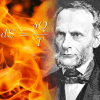Articles on physics and its technical applications.
How Can We Improve Recycling ?

Most of people believe that material recycling is the true recycling and thermal recycling is a fake. But the conventional material recycling is actually downcycling, whereas thermal recycling by the gasification system can realize more radical recycling. That is to say, what was thought to be the genuine recycling is deceptive, whereas what was thought to be the deceptive recycling is genuine. This recognition leads to reconsideration of the role that the government must play to promote recycling.
The Reasons Georgescu-Roegen Was Wrong About Recycling

Georgescu-Roegen coined the fourth law of thermodynamics according to which matter continuously and irrevocably degrades from an available to an unavailable state in a closed system including the Earth and predicted that we would soon arrive at the state of maximum entropy, material death rather than heat death. He also insisted that recycling could not avoid this material death, because the ideal of complete recycling is based on the illusion of the thermodynamically impossible perpetual motion. But what he called the fourth law of thermodynamics is false. A closed system such as the Earth can reduce material entropy in exchange for increasing thermal entropy, keeping the former low by dumping the latter in outer space. That is to say, a sustainable economy based on recycling is possible, at least theoretically.
How Did Clausius Define Entropy?

Clausius, one of the main founders of the modern thermodynamics, is the originator of the term “entropy,” but before this coinage he used an expression “equivalence value of transformations” instead. The term “entropy,” which is now used as a physical term, was originally economically conceived as equivalent value of exchange. Thermodynamics itself was a field of physics that was economically motivated to improve the thermal efficiency of heat engines. So, it was half physics and half economics. Apart from Clausius’s interest, the term has now become an important keyword for solving the environment and resource problems.
How Original Is Galileo’s Work on Kinematics?

Galileo was once thought to have discovered kinetic laws important for classical mechanics by himself by means of observations and experiments in contrast to the Scholastics who confined themselves to the interpretation of Aristotle. To be sure he gave such an impression to readers, but the fact is that the Scholastics in 14th century such as Oxford Calculators and Oresme who discovered and developed the Mean Speed Theorem prepared for Galileo’s discovery of kinetic laws. They did not perform experiments except thought experiments, but since the 17th century scientific revolution is the shift from Aristotle-Thomas paradigm to Plato-Archimedes paradigm, we can consider the Oxford Calculators and Oresme to be the pioneer of the paradigm shift, because this paradigm insisted on mathematical models preceding experience.
How Should Scientists Deal with Occult Phenomena?

Magnetism and electrostatic forces were regarded as occult action at a distance from ancient times and the inquiry into it waned when Christianity that banned magic had strong power. Since the Renaissance, however, researchers dared to study the occult magic and thus they pioneered modern electromagnetism and mechanics. Newton and Coulomb recognized gravitation and electromagnetism as action at a distance but today they are explained as action through medium. The lesson we must learn from history of electromagnetic theory is that we should not refuse study in occult phenomena because of its occult appearances but, as accepting action at a distance is not science but occultism, it should be explained as action through medium.
Can Recycling Prevent Pollution?

Although we intuitively understand what pollution is, its essence is unclear. Without gaining an insight into the concept of pollution, we cannot find a solution to eliminate it. In this article, I first define what pollution is in terms of entropy and then examine the feasibility of material recycling and energy recovery of waste as the solution for waste disposal.
How Do We Make Space 3 D?

We take it for granted we live in the three-dimensional space, but we do not perceive the three dimensions directly. Why do we consider the space to be 3D?
Why Are We Conscious of Time?

The question "What is time?" has been an eternal problem for philosophers. However, you can define a physical time by making the second law of thermodynamics analytic. How can we define the time in our mind, then?
Is the Zero-Emission Recycling Possible?

In modern Europe, engineers tried to invent perpetual motion machines, only to fail. Perpetual motion machines are imaginary machines that eternally work without being supplied with any fuel once they are set up. Invention of perpetual motion machines is modern alchemy.
From the Second Law of Thermodynamics to the Law of Entropy

There are two fundamental laws in thermodynamics. The first law of thermodynamics is the law of the conservation of energy. The energy of the universe is constant. The second law is the principle of maximum entropy. The entropy in an isolated system does not decrease.
